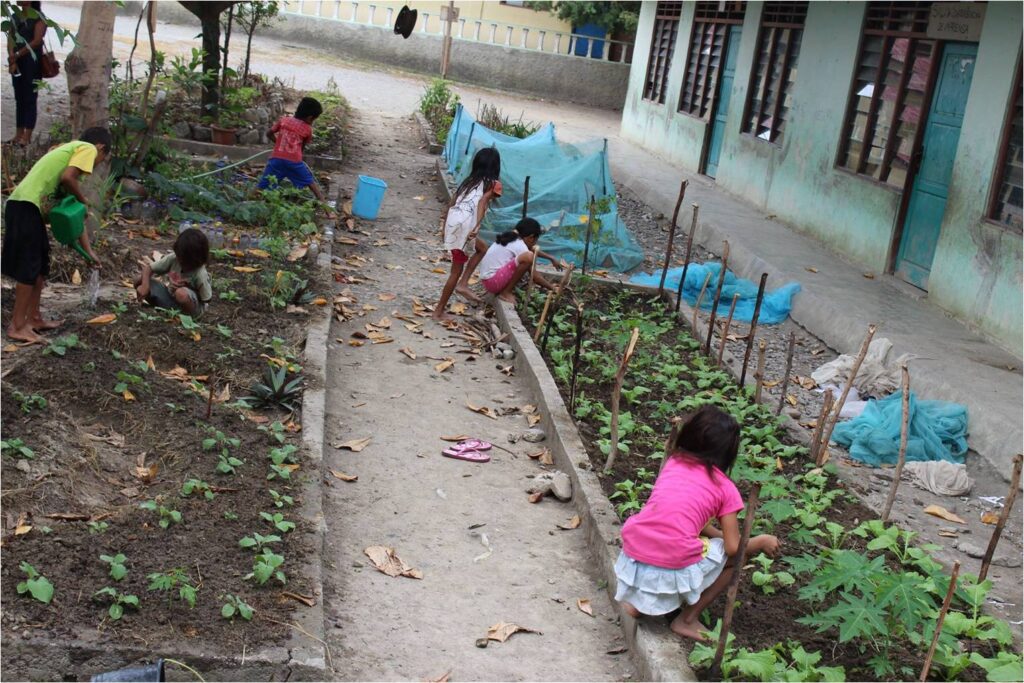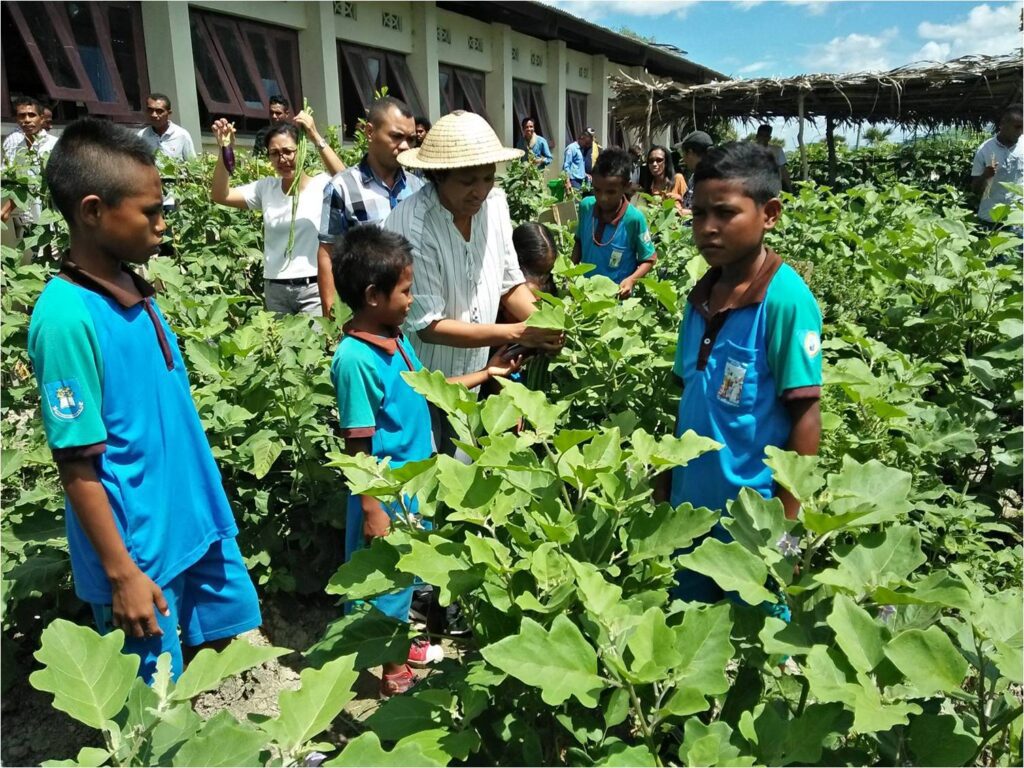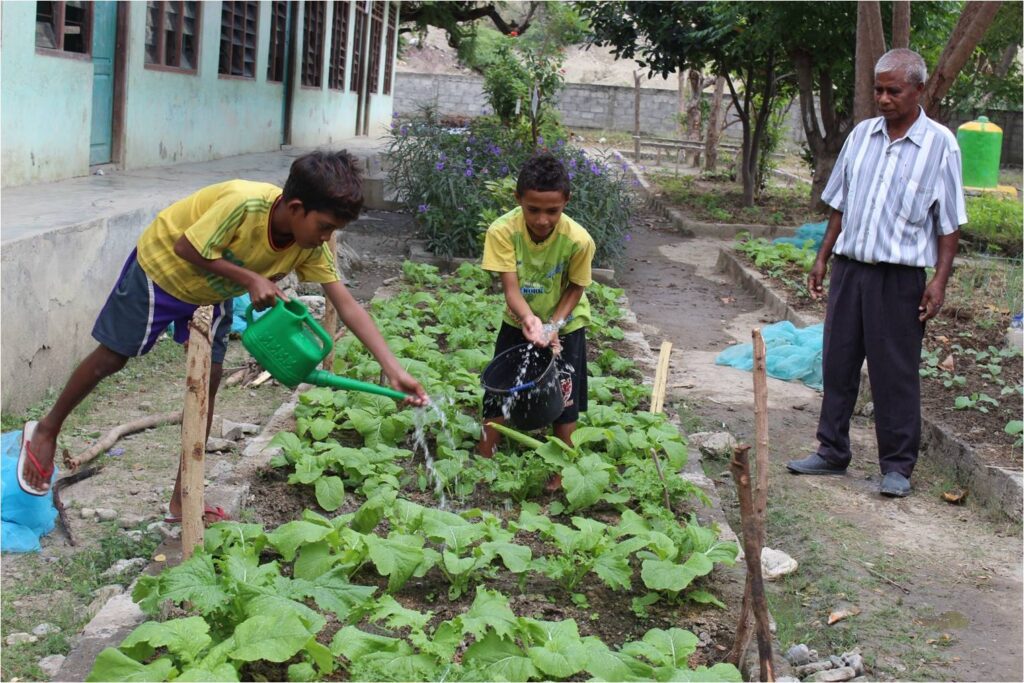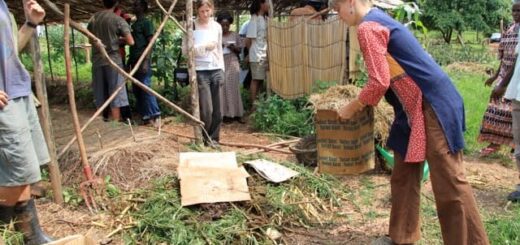Supporting permaculture education in primary schools
Timor Leste is working towards food security and food sovereignty by introducing permaculture into the school curriculum. Food gardens established in primary schools teach life-long skills, produce food for school lunches and become a nexus for spreading skills to the wider community, enhancing production and efficient resource use in home gardens.
The program is the brainchild of Ego Lemos, founder and Director of the not for profit organisation Permatil (Permaculture Timor Leste) and co-author of The Tropical Permaculture Guidebook. You can read all about Ego in this recent article.
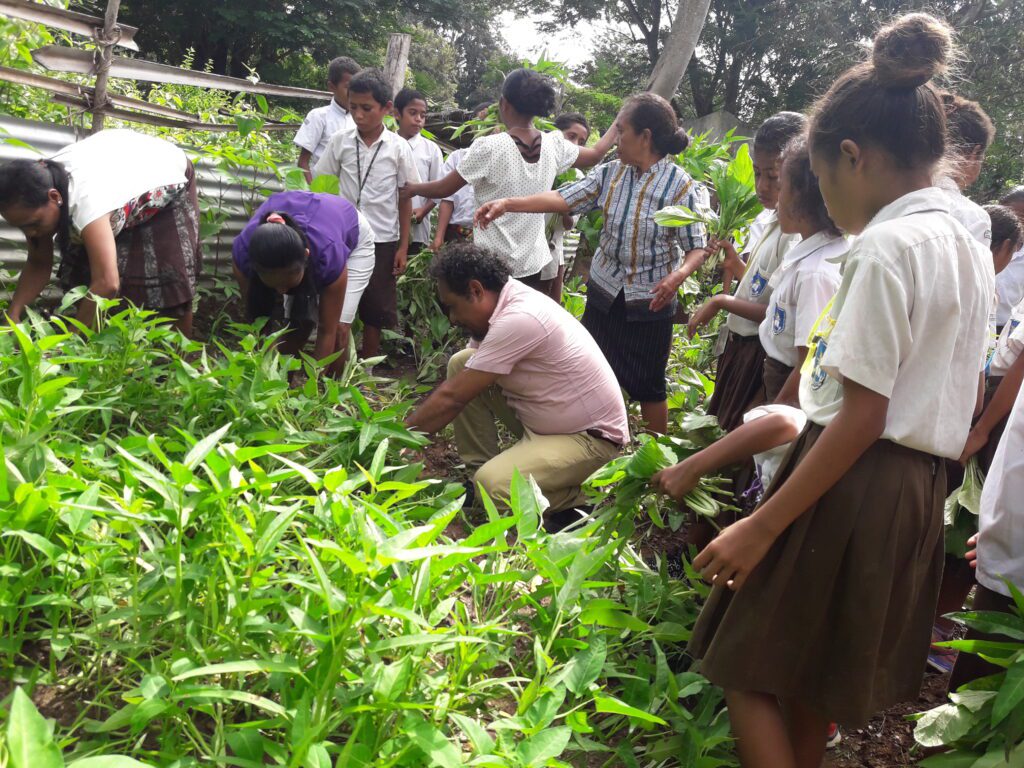
Ego leading the classroom in some cultivation
As well as music, performance and art he managed to incorporate permaculture and cuisine. With some tactful lobbying, Ego convinced the Education Department to approve a permaculture syllabus – and now permaculture is a compulsory subject for all Timorese kids in grades 3 – 6.
Through the hands-on program, children are taught a range of practical skills using permaculture concepts including:
- How to grow vegetables
- Composting
- Integrated Pest Management
- Design of Garden
- Living fences
- Seed collection and storage
- Tree Nursery
School gardens are also used for, in Ego’s words, ‘active learning in a living book or laboratory’ to effectively convey skills and knowledge in other aspects of the curriculum such as:
- Science
- Maths
- Literacy
- Social Science
- Natural Science
- Problem solving
- Adapting to climate change
Despite inclusion in the curriculum, the Timoreses government has not provided any funding for implementation of the Permaculture in Schools program. As a result, Ego and Permatil, who deliver the program, have had to find donors to fund the program’s implementation, school by school. The program began with a pilot program in two schools in late 2015, and following their success, has gradually expanded to around 178 schools now running the program. Funding has mostly come from small NGO’s including Australian – Timor Leste Friendship groups.
The next important phase of the project’s growth is to perform an evaluation of its effectiveness as it is being presently rolled out. This will:
- Ensure and improve the effectiveness of the program. We’ll see what’s working well and what’s not and from this create recommendations and guidelines to get everything working well across all schools where the program’s implemented
- Provide evidence to potential funding bodies and the TL government that the program is achieving its aims and the aims of funders / the government – and thus encourage them to support it
- Demonstrate that Permatil is a responsible organisation that incorporates monitoring and evaluation techniques as part of project life-cycles to ensure its programs are effective, adaptive and relevant and that funds aren’t wasted
- Train local / Permatil staff and volunteers in monitoring and evaluation techniques to ensure the program remains on track

